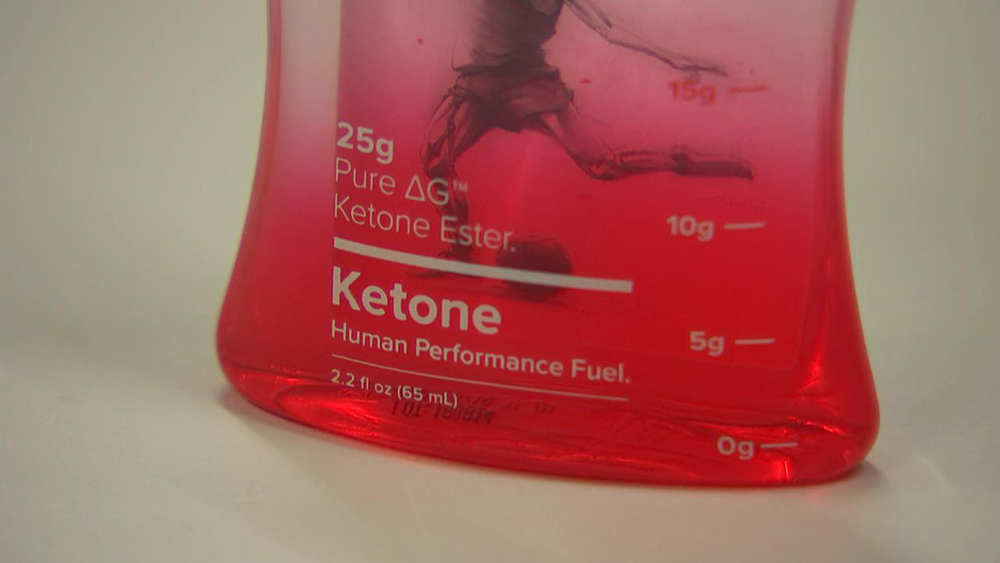‘Ketones are bad for cycling's credibility’ warns TotalEnergies team manager
Jean-René Bernaudeau calls for the UCI and team sponsors to ban the use of the controversial supplement

Team TotalEnergies team manager Jean-René Bernaudeau has called on the UCI to ban ketones and so end the debate about their risks and benefits. Bernaudeau believes a clear stance on the use of ketones can boost professional cycling’s credibility.
Ketones first emerged over a decade ago with Great Britain allegedly boosting its medal haul, including in cycling, at the 2012 London Olympics thanks to the experimental use of the diet supplement.
In 2019 Jumbo-Visma admitted they used ketones and several other teams began to do the same. However, members of the MPCC clean cycling movement, which includes eight WorldTour and 15 ProTeams, ruled that their members cannot use ketones, creating a divide in the peloton.
Many riders, including Romain Bardet, Thibaut Pinot and Guillaume Martin have since called for ketones to be banned, while others defend them and believe they are effective, despite a lack of clear medical evidence.
The UCI issued a “notice of non-recommendation” in 2021, calling on riders and teams not to utilise the ketones, although they did not go as far as to ban their use. Wada has also opted not to ban ketones, despite questions about their long-term use and side effects.
“Ketones are a grey zone in cycling. It's not good for our sport's credibility and attractivity,” Bernaudeau told Cyclingnews at the TotalEnergies training camp in Spain.
“Everyone is aware ketones are in use among several teams but nobody knows what they really are. It's ironic. Teams who say they take ketones pretend they’re not enhancing performances. So why do they take them?”
Get The Leadout Newsletter
The latest race content, interviews, features, reviews and expert buying guides, direct to your inbox!
The UCI announced they were investigating the effect of ketones in a study but the final report, which was due to be published in 2023, has been postponed numerous times. Professor Xavier Bigard, the UCI medical director, has acknowledged to L'Equipe that it would be “complicated” to ban ketones.
Bernaudeau wants the UCI to be more proactive on the supplement.
“The UCI isn’t acting as a governing body,” Bernaudeau said, suggesting the “UCI should follow the recommendations of the MPCC.”
“The MPCC pushed the UCI to ban Tramadol. Now it’s a great time to solve the ketones case.”
Bernaudeau believes that a ban on the use of ketones could avoid possible long-term health risks and help professional cycling’s image in the eyes of sponsors.
“I meet quite a few CEOs who are concerned about ketones, CEOs of very, very important companies in Asia, who are strict about rules, ethics and transparency,” Bernaudeau said.
“Cycling has the potential to be the world's number one sport but has no real global sponsors,” Bernaudeau added, highlighting how Richard Plugge struggled to find new backers despite Jumbo-Visma winning all three Grand Tours in 2023.
“I feel sorry they can't find bigger sponsors. I have nothing against them, I just would like the biggest team to have the biggest sponsors.”
Bernaudeau said he feels “lucky” to have one of the wealthiest title sponsors in the peloton, even though his team doesn't have the highest budget.
Total was ranked the 21st largest company in the world based on revenue by Fortune Global 500, with revenue of $263.3 billion in 2022 and over 100,000 employees in 130 countries.
The TotalEnergies team competes at ProTeam level and relies on wild card invitations to the Tour de France and other major races.
“TotalEnergies came into cycling when they bought my former sponsor Direct Energie in 2019'” Bernaudeau explained.
“I feel a great responsibility toward them. The Management Board is very sensitive about ethics issues and it's great to have sponsors with strong values.”
Like after the damaging 1998 Festina Affair doping scandal and confirmation of the widespread use of EPO in professional cycling, Bernaudeau believes “it's time for sponsors to play a role in clean cycling.”
“They have the power to tell their team managers and riders to stop using ketones,” Bernaudeau said.